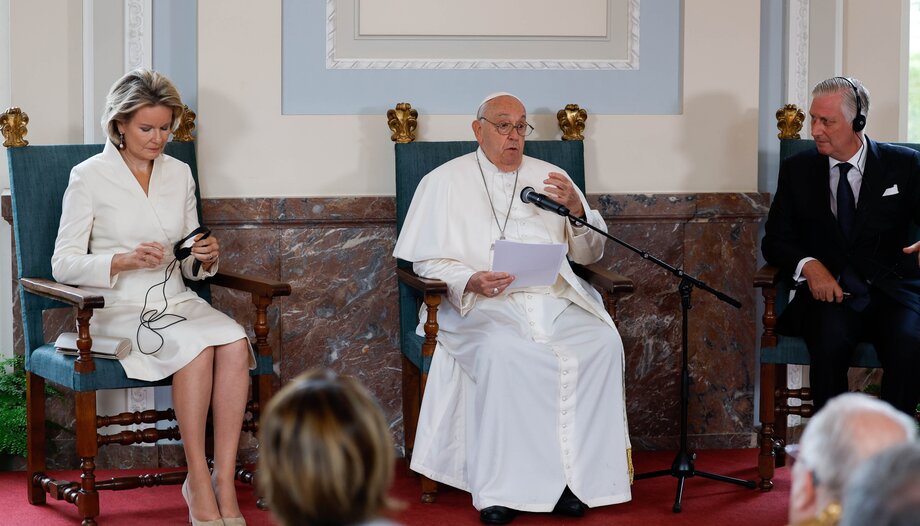On the morning of September 27, Pope Francis landed in Belgium, a country that "evokes something small and big at the same time, a Western country and at the same time central, as if it were the beating heart of a giant system."
In its meeting with the authorities and the civil society of the country, the Holy Father described Belgium "as the ideal place, almost a synthesis of Europafrom which to contribute to the physical, moral and spiritual reconstruction. He compared this nation to "a bridge where each one, with his language, mentality and convictions, meets the other and chooses the word, dialogue and exchange as means to relate to each other". In other words, a country "indispensable for building peace and repudiating war".
For this reason, the Holy Father stressed, "Europe needs Belgium to carry forward the path of peace and fraternity among the peoples that form it". Something important because, according to the Pontiff, "we are close to an almost world war".
But this role played by Belgium does not rest on his shoulders alone. Francis explained that "the Catholic Church wants to be a presence that, bearing witness to its faith in the risen Christ, offers to individuals, families, societies and nations, an ancient and ever new hope, a presence that helps everyone to face challenges and trials, without volatile enthusiasm or gloomy pessimism, but with the certainty that the human being, loved by God, has an eternal vocation of peace and good, and is not destined to dissolution or to nothingness."
Abuses in the Church
However, the Pope wanted to put on record that "the Church is holy and sinful". It moves "between light and shadow," as shown by the "results of great generosity and splendid dedication" when confronted with "the shame of the abuse of minors."
"The Church must be ashamed, ask forgiveness and try to resolve this situation with Christian humility," the Holy Father said referring to the abuses. He further stated that "a single abuse is enough to be ashamed of".
The Pontiff also referred to "forced adoptions" that occurred "in Belgium between the 50s and 70s of the last century". Francis explained this phenomenon by saying that "often families and other social entities, including the Church, thought that, in order to remove the negative stigma, which unfortunately in those times affected the single mother, it would be better for both mother and child that the latter be adopted."
Responsibility of the authorities
The Pope stressed that this was a great mistake and prayed before all "that the Church may find in herself the strength to act with clarity and not to conform to the dominant culture, even when that culture uses, by manipulating them, values that derive from the Gospel".
The Bishop of Rome also prayed "that those who govern may know how to assume their responsibility, the risk and honor of peace, and know how to ward off the danger, ignominy and absurdity of war". Finally, Francis confessed to those present that during his visit to Belgium he hopes to revive a "desire for hope", a gift of God.
University professors in Belgium
On the afternoon of Friday the 27th, the Pope held a meeting with university professors in Belgium. In his speech, he pointed out that the main task of the university is "to offer an integral formation so that people acquire the necessary instruments to interpret the present and project the future".
Francis pointed out that "cultural education is never an end in itself and universities must not fall into the temptation of becoming cathedrals in the desert, but are by their very nature places where ideas and new stimuli for human life and thought are promoted."
Expanding the frontiers of knowledge
The Holy Father stressed the role of the university as a place where "the passion for the search for truth" is promoted. In this sense, Catholic institutions must bring to this search "the leaven and salt of the Gospel of Jesus Christ".
Francis invited those present to "widen the frontiers of knowledge" to create "a vital space that embraces life and challenges it". This is an essential question because, in the Pope's words, "to widen the frontiers and to be an open space for man and society constitutes the great mission of the university".
Faced with the culture of relativism and mediocrity, the Pontiff stressed that the university has to fight against "weariness of spirit" and "soulless rationalism". It is the task of university professors in particular to foster "a culture that is capable of facing today's challenges," for which the Pope thanked the professors for their work aimed at achieving this.








